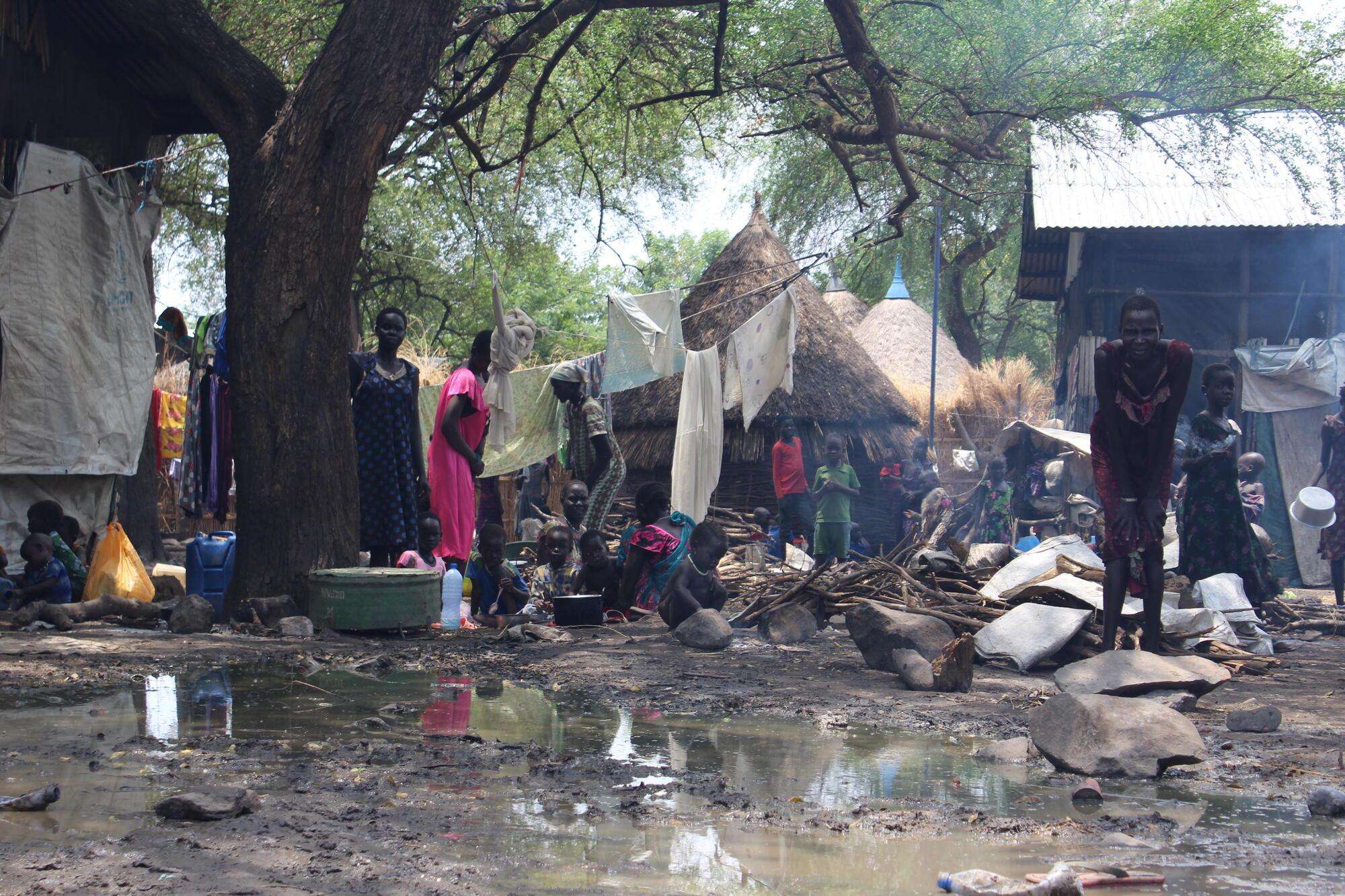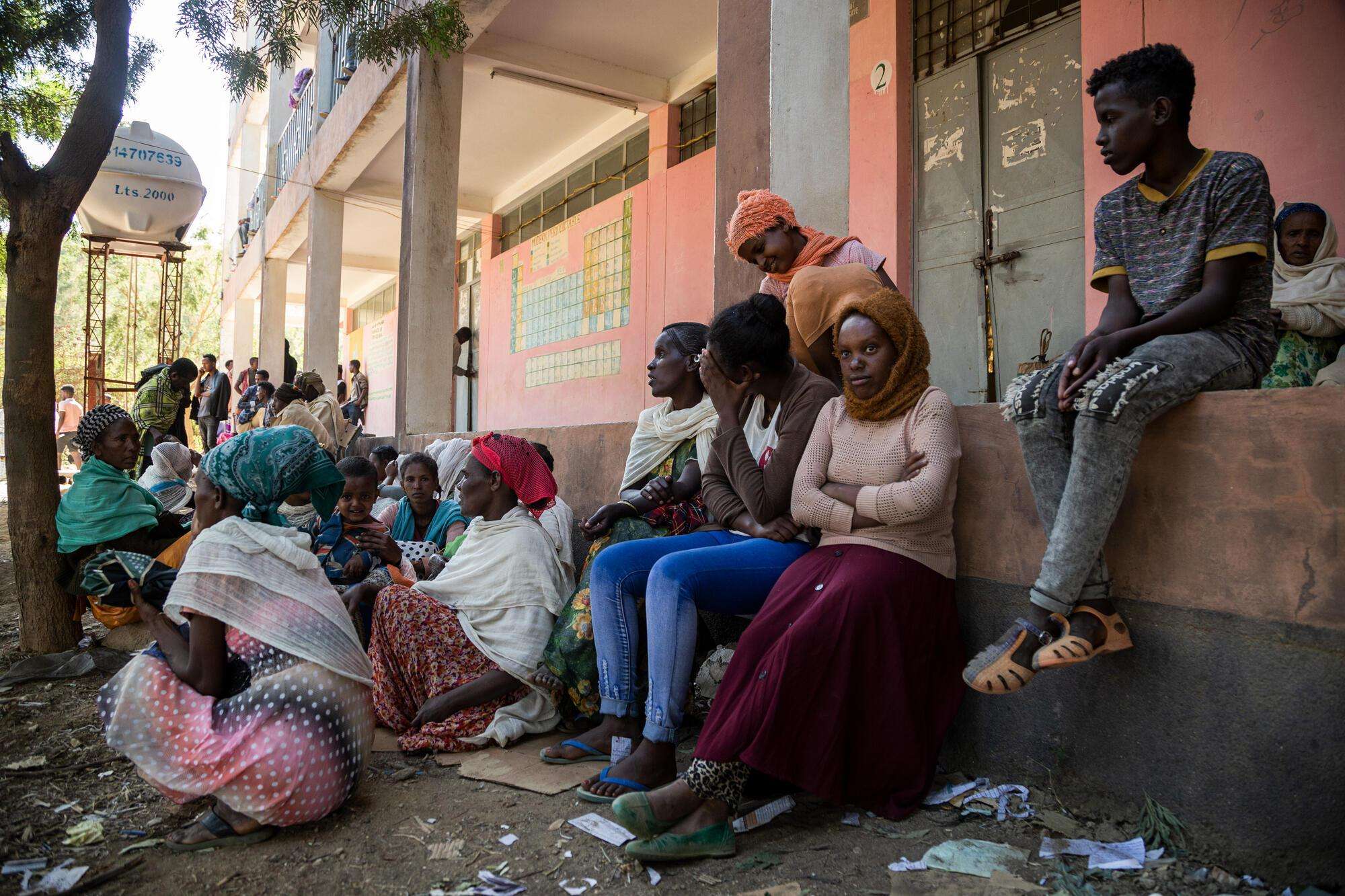Thousands of asylum seekers who fled South Sudan have been stuck for months in appalling conditions in a reception center in Ethiopia’s Gambella region without meaningful access to essential services, especially food aid. And with the rainy season looming, Doctors Without Borders/Médecins Sans Frontières (MSF) is concerned that conditions could deteriorate even further.
Nyaluak Tang* walked for almost a month with her husband and six children to escape South Sudan’s Jonglei state to the Ethiopian border village of Pagak, where they arrived in August 2020. “We left because of the severe floods in our district, which left us without food,” said the 30-year-old. “Another reason was insecurity. One of our children was abducted by another ethnic group, and we feared for the safety of our other children.”
The family came to Ethiopia in hopes of being settled in a refugee camp and getting food aid and a secure place to live. Ethiopia hosts a large number of asylum seekers and refugees. In the Gambella region alone more than 337,000 refugees live in seven camps. The registration and relocation of new arrivals has been put on hold for months, however, due to COVID-19 and other challenges.
For eight months Tang and her family have been stranded in a reception center in Pagak intended to accommodate asylum seekers for just a short period of time. At this flood-prone site, some 16,000 asylum seekers from South Sudan—all of them from the Nuer ethnic group, the majority of them women and children—live in a small, fenced-in, and overcrowded space wedged between settlements of the host community.
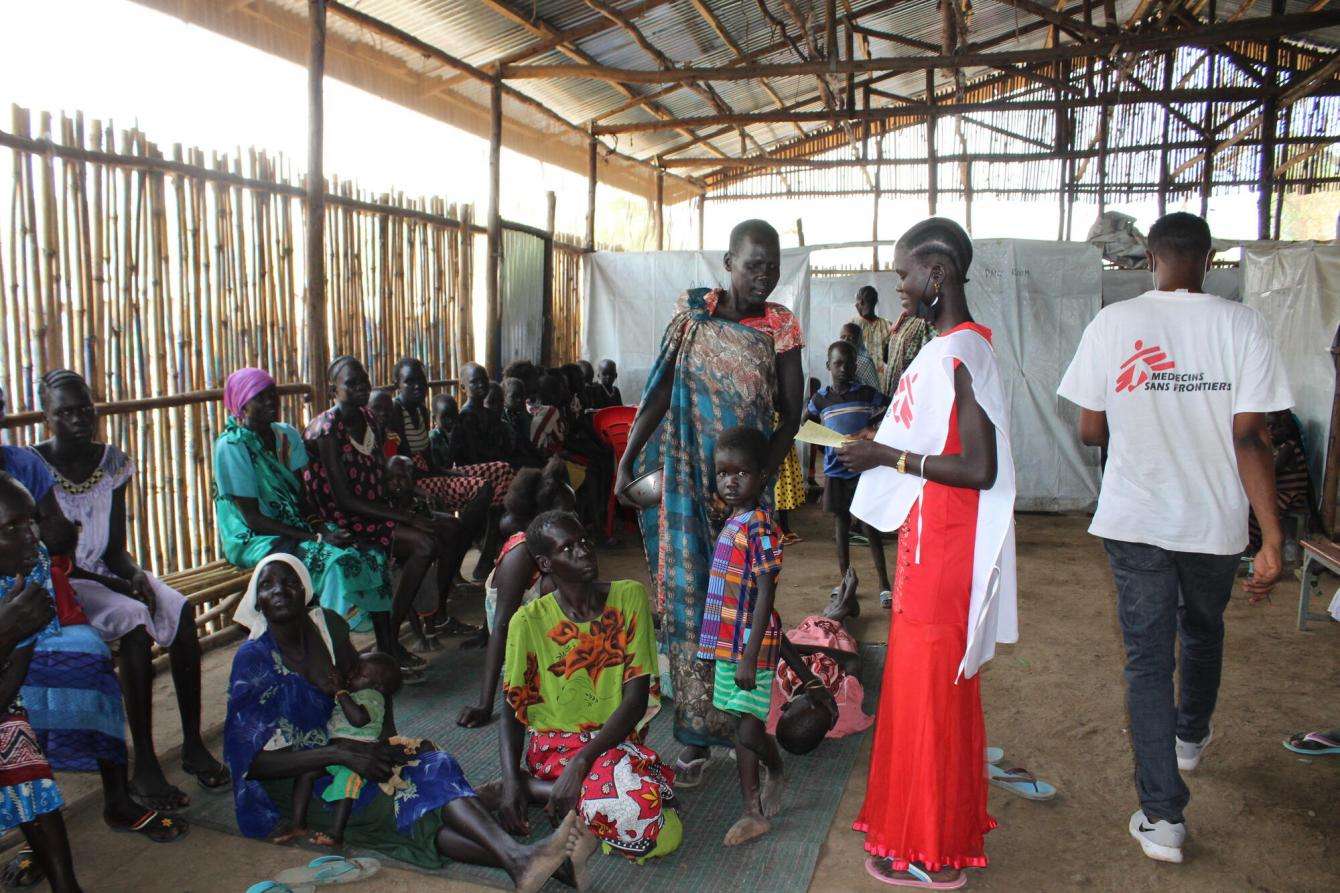
Living conditions are dire, with thousands of people packed into about a dozen decrepit buildings that are little more than sheds, most without any mattresses or blankets. Hundreds more women and children, including pregnant mothers and babies, sleep outside, many without even plastic sheets to lie on or blankets to cover them and without any protection from the elements. Hygienic conditions in the center are poor, with latrines frequently overflowing. In February and March, MSF treated 1,233 children with acute watery diarrhea.
“Nobody is helping us”
Without being registered, the asylum seekers do not have meaningful access to essential services. People have not received any food assistance since they arrived in Pagak. Everyone is hungry.
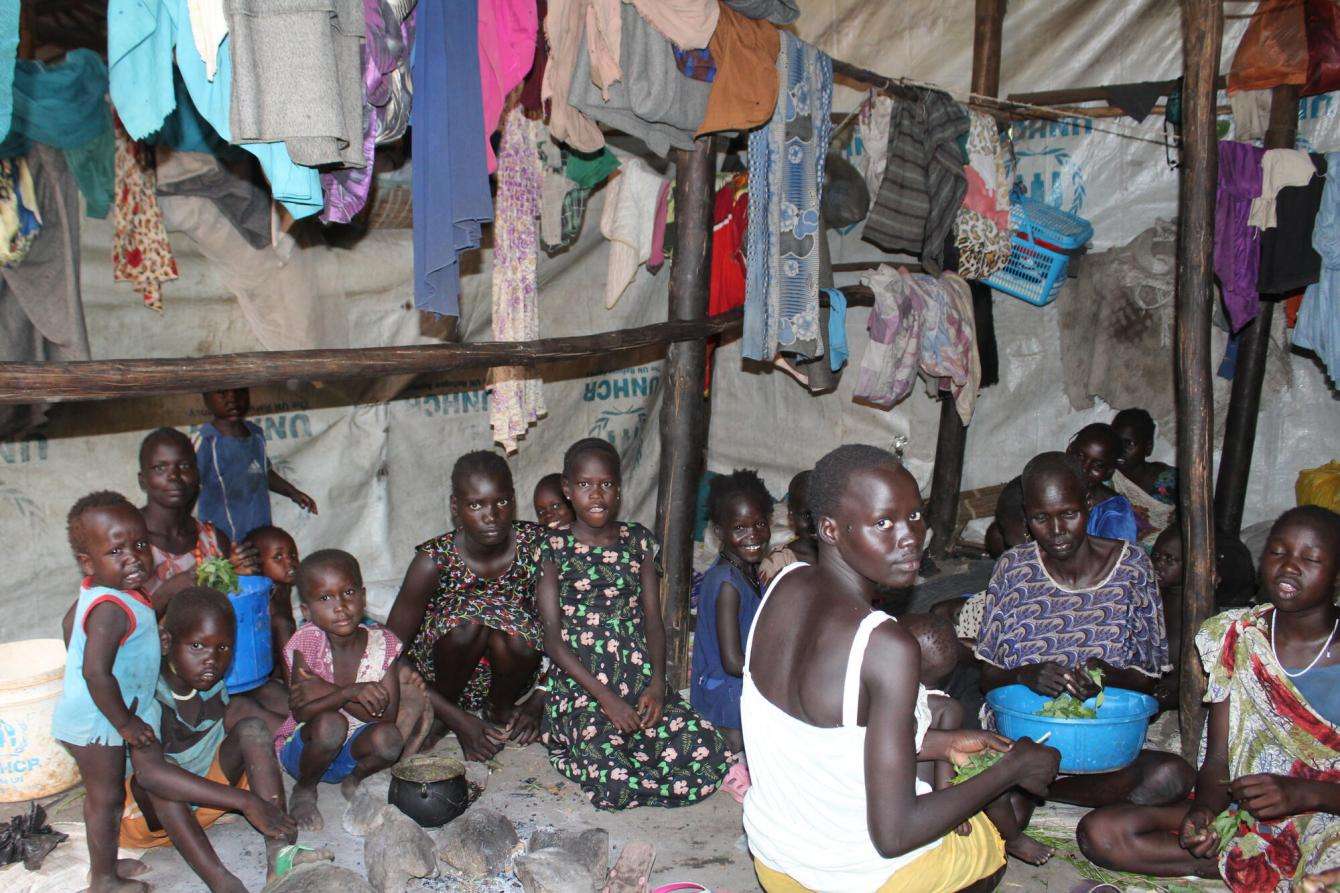
“I am collecting forest fruits and leaves that I cook for my children,” said 45-year-old Nyachuol Tut*. Everywhere in the reception center, women cook bright green leaves in pots on makeshift fireplaces. For many, that’s all they have eaten for months. Others collect firewood, selling it in the local market to buy millet or other food.
Venturing into the forest to collect wood can be dangerous. “Sometimes we see soldiers from South Sudan who cross the river into Ethiopia, and they beat us,” said Nyachuol. Asylum seekers also say that children playing close to the nearby river that separates Ethiopia from South Sudan have been abducted.
Many mothers are at their wits’ end, such as 28-year-old Nyabol Lam*, who arrived in Pagak in February. She fled Jonglei State with her own three children and three nieces and nephews after her sister and brother-in-law were killed in inter-communal fighting. The youngest child is just one year old.
They all sleep outside. “I don’t even have a container to cook, [and] no utensils,” she said. “We have nothing to eat. The children are just sleeping because they have no energy. We have no clothes, no blankets. Nobody is helping us.”
Rains will worsen conditions
With the upcoming rainy season, which starts at the end of April, the situation will deteriorate further if no solution is found. Already, occasional downpours have turned parts of the camp into swamps. Once the rains start in earnest, people will no longer be able to sleep outside.
“When it rains, we all seek shelter in the sheds,” said 67-year-old Gatluak Deng*, who sleeps outside with his children and grandchildren. “Because it’s so crowded then, we have to sit up all night. No one has the space to lie down.” The rainy season will also make it difficult to collect firewood, leaves, and forest fruits, and to cook outside.
The pools of standing water at the site also make an ideal breeding ground for mosquitoes, which spread malaria. “Malaria is already one of the top morbidities of children under five,” said MSF country director Audrey van der Schoot. “In February and March, we treated 593 patients with malaria. We expect the numbers to go up once the rainy season starts, as well as cases of waterborne diseases such as acute watery diarrhea.”
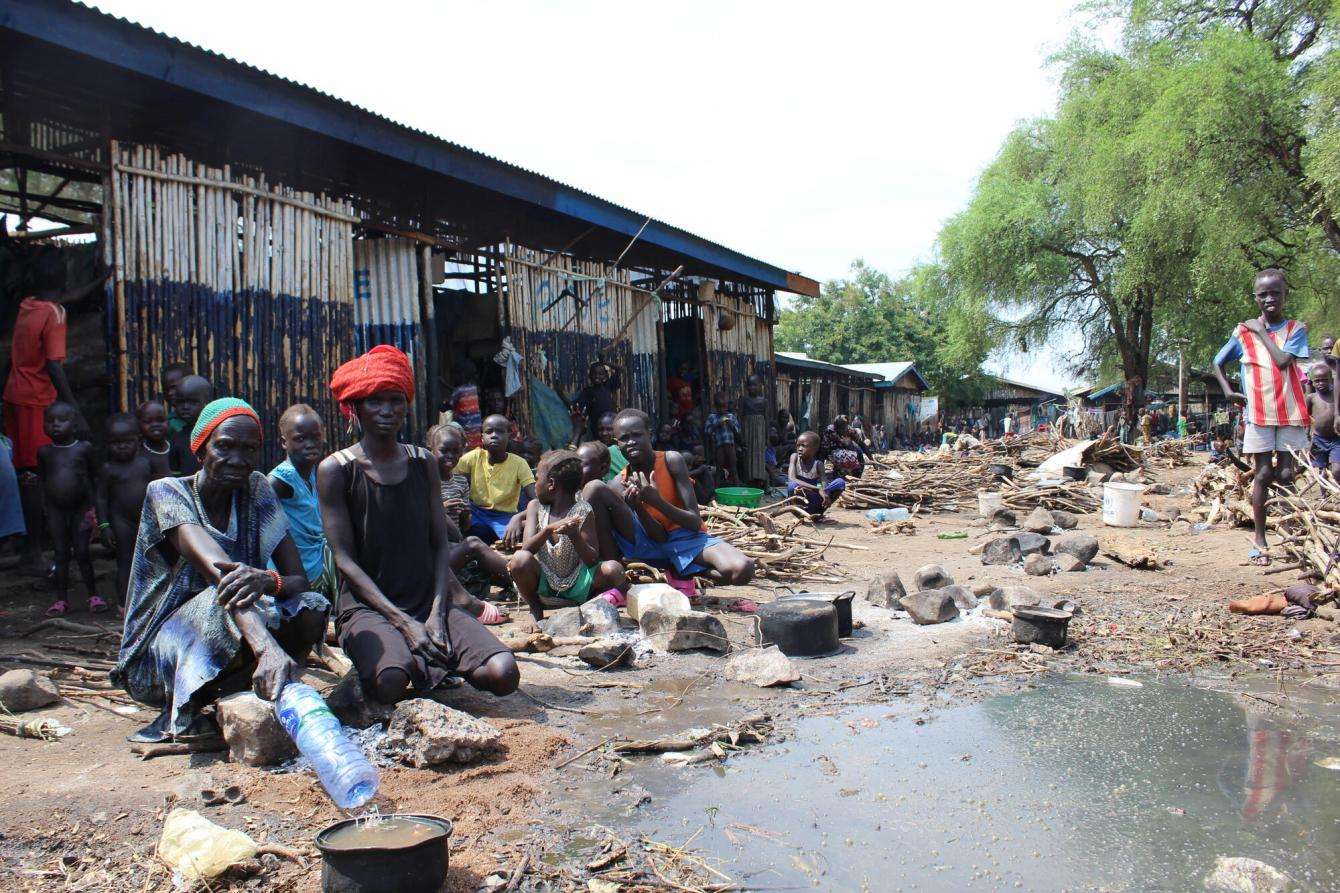
COVID-19 is of concern as well. In March, there were four confirmed cases of the disease in the Pagak reception center. With people living so closely together, without masks and proper infection prevention and control measures, COVID-19 and other communicable diseases can spread fast. The situation will likely become worse once the rains start, when everyone is huddled together under the few available roofs.
“The situation needs to be addressed urgently,” said van der Schoot. “Asylum seekers need to be registered in a timely manner, and the process for the establishment of a proper reception center in a more suitable location in the region where they will receive food, protection, and other services needs to be sped up. In the meantime, we urge other organizations to scale up the provision of essential services in Pagak.”
MSF started medical activities in the health post in Pagak in February 2021 and has carried out more than 6,870 medical consultations up to the end of March, caring for both asylum seekers and the host community. The top five morbidities for children under five are acute watery diarrhea, upper and lower respiratory tract infections, malaria, and eye infections.
*Names changed to protect anonymity.
